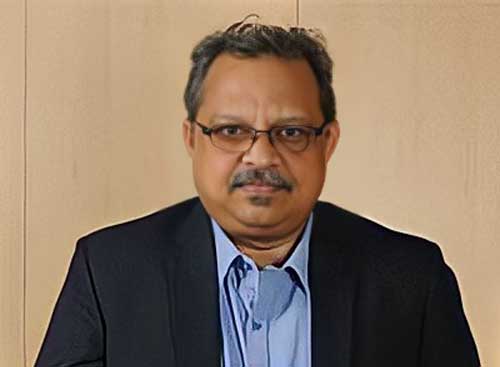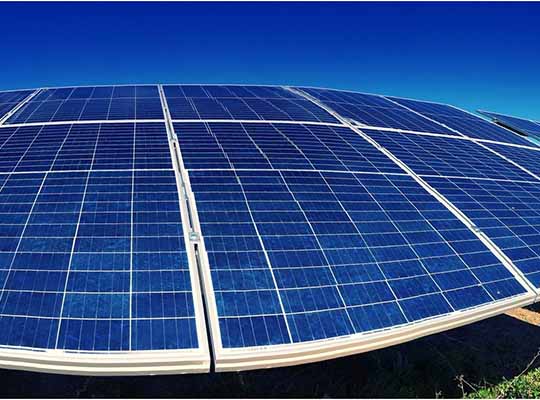Urja Daily – Tell us about VA-YU and how it works
Founded in 2020 by Mr. Ashish Aggarwal, VA-YU is an e-scooters booking platform, it’s an app- based on-demand e-scooter on rent in Delhi/NCR. It provides safe, sustainable, mobility solutions for both businesses and individuals. VA-YU’s genesis came from the need to offer environmentally sustainable transport solutions for an already polluted city.
Operations
- VA-YU operating since May 2020 started with 40 scooters and currently has 300 scooters. It already has the largest fleet of scooters in Delhi-NCR.
- App based scooter booking platform where user has to do their KYC & can book the scooter according to the subscription plan they choose.
- Response time is quick as the complain is resolved within 2-3 hours
- Provides door step delivery and pickup along with free road side assistance for customers
Urja Daily – How is VA-YU growing in terms of shared mobility in Delhi and how do you see it in the next 3-5 years?
- India has close to 20 crore 2 wheelers and this is set to go upto 30 crores by 2030. For this largest segment of vehicles customers we had no innovation around how these vehicles are owned or how they are maintained and serviced.
- Rising incomes mean that people have more mobility needs now a days. People are also more mobile in terms of the cities they are in, jobs that they do and places that they live. Therefore there mobility needs are changing all the time and there are not certain that their commute will remain the same 6 months or 1 year down the line. It is for these reasons that we find such a strong appetite for a rental service like ours.
- The market size for rental vehicles in Delhi NCR market is between 1 to 1.5 lac vehicles and further the top 50 cities in India need another 40 to 50 lac vehicles. VA-YU aims to capture a majority of this market, while at the same time aiding the shift of a wider consumer base for move from petrol vehicles to EV’s. Over the next 3-5 years, we will be very delighted if VA-YU enables a shift of a large user base from petrol vehicles to EV’s. We also look forward to being able to make a significant contribution to India’s emission goals. On our own fleet we expect to maintain our leading position in the EV 2 wheeler space and to be a services provider for majority of the rental EV 2 wheeler’s in India
Urja Daily – Share some specific qualities and details that VA-YU have?
- Simplifying the problem of ownership of vehicles and making people adopt electric mobility
- Can track rider’s behavior through the app – Battery state of charge, speed limit, driving speed, location, etc.
- Made in India Scooters
- We provide all inclusive package to our users with the price including doorstep delivery, doorstep repair and maintenance, road side assistance
- Rental plans start from as low as 950/week and 3069/month for the 6 monthly plan
- A Government of India recognized start-up
- Within a year, VA-YU’s business has grown more than 94% in a year
- VA-YU has already completed 20 Lac green km’s and has made a sizeable impac t in reducing pollution. Swappable batteries allow it to go up to 70 kms on a full charge
- VA-YU has enabled health care workers, delivery of essential services and has also enabled jobless workers to pick up gig economy jobs.
- The zero-emission, fully-electric VA-YU scooter is custom-built for city commutes as well as delivery segments and has a number of anti-theft features.
Urja Daily – What are your expansion plans?
We have a 300 strong fleet out on the roads today, and utilization levels have been at 97 percent. We are looking to close our pre-series A round in the next 15-20 days. We would like to build on our success and increase our fleet by doing what has worked well for us, at the same time customer feedback is very important for us. We like to understand the needs of our customers and to make small tweaks to serve them better. We are also working on development of more software and hardware modules within the vehicle to make our operations better. We believe that the EV revolution is in its very early days and that lot of R&D will go into the manufacturing side as well as on the fleet management side to make it a success.
Urja Daily – What attract customers to take your VA-YU bike for rent?
- Small upfront cost of as low as weekly rental of 950 in advance and 1000 security deposit.
- All services are home delivered in the all the plans, so the customer has convenience.
- Customers are able to pause their plans or returns the scooters and they are not charged any penalty.
- Comprehensive insurance cover on the vehicle, so that the users liability is limited only to Rs. 1000 only.
- Personal accident cover of Rs. 5 lacs each on rider as well as pillion rider.
- Allows temporary workers to take up a couple of jobs, thereby enhancing their earning potential.
- Small and medium businesses are booking the firm’s vehicles for its employees so that they can carry out faster home deliveries.
- VA-YU offers a range of plans from one week to 3 months and these plans start from as little as INR 950/- for a week and is all-inclusive of taxes, insurances, home delivery of the scooter and maintenance and repair at the users home.
- The scooter incorporates the latest made in India EV drive train and is equipped with swappable batteries that allow it to go up to 70 km on a single charge.
Urja Daily – How do you see India’s EV infrastructure?
Our industry along with the government has to make efforts in a number of directions. We need to work on sustainable energy generation, we need to have differential pricing between peak grid demand and non-peak demand and we need smart metering to enable that. We also need to analyze and execute the network upgradations required at local city levels. The efforts on charging points and battery swapping locations are already underway, however the industry needs to come together and find commonalities across this aspect instead of creating stand-alone networks which are not compatible to each other. Lastly, we need to channel our efforts in keeping up with technology on the battery side and in localizing the manufacture of these batteries. All in all, EV’s play a major role in our shift towards a more sustainable way of life, however that will be incomplete till we solve some of these bottlenecks.
Urja Daily – Tell us some suggestions that you would like to gives to the Indian govt for EV sector
- The Indian government understands the importance of the shift to electric vehicles and has made a number of significant steps to promote them. Schemes like Fame incentivize manufacturers to localize manufacturing and provide subsidies on purchase of vehicles. Delhi government has also added significant subsidies on top of it and has regular meetings with industry players like us to understand our concerns and challenges.
- We however believe that subsidies are not the right way forward, in the long terms the industry has to stand on its own feet and the government has to enable that. Very often we see that the policies are great but the implementation is a challenge. For this we would welcome dedicated forums and independent nodal offices to solve the implementation issues we face. We would also like to see more alignment in the central and state policies as well as between the various states.
- Some of the most forward-looking policies and schemes of the government around shared mobility like rent a scooter scheme, bike taxi scheme or two wheeler aggregator scheme are still implemented across all states. This is a major impediment to our sector and it leads to disorganized and unregulated growth of businesses in these areas.
- The financing requirements of EV’s are higher than the petrol vehicles and for EV’s to succeed in the long run, more mainstream banks and financial institutions need to step in and develop understanding of this new industry.
- Although India has robust network of fuel stations catering to ICE vehicles but with such a rise in the penetration and availability of EV’ use to 30% by 2030, charging infrastructure needs to ramp up exponentially.
- India needs to focus on affordable renewable energy to ease the stress on electricity grid that runs on coal. Because it is not smart to minimize the usage of petroleum by burning coal and harming environment either way.
- EV energy needs can be balanced with off peak demand hours from the grid, but for this users have to be incentivized with differential electricity pricing across the day and that can be enabled by smart metering.













